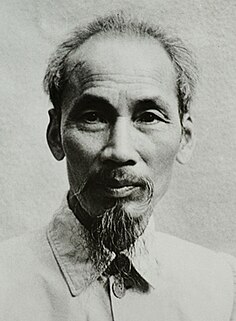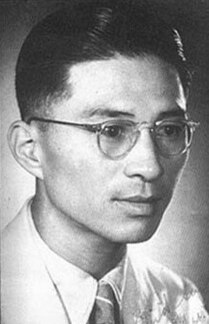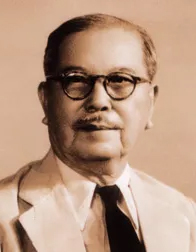 W
WRajka Baković was a Croatian student and a member of the anti-fascist resistance movement in the Nazi-puppet state of the Independent State of Croatia (NDH). She and her sister, Zdenka, used their family newsstand at Nikolićeva Street No. 7 in Zagreb as a central hub for the connection of members of the resistance at the beginning of World War II.
 W
WThe Buchenwald Resistance was a resistance group of prisoners at Buchenwald concentration camp. It involved Communists, Social Democrats, and people affiliated with other political parties, unaffiliated people, and both Jews and Christians. Because Buchenwald prisoners came from a number of countries, the Resistance was also international. Members tried to sabotage Nazi efforts where they could, worked to save the lives of child inmates, and in the last days of the camp, with many Nazis fleeing the approaching allied troops, tried to gain control of the camp itself. After liberation, the prisoners documented their experiences on paper and formed an international committee to look after the welfare of survivors.
 W
WChin Peng, former OBE, born Ong Boon Hua was a Malayan communist politician, anti-fascist activist and long-time leader of the Malayan Communist Party (MCP) and the Malayan National Liberation Army (MNLA).
Choe Hyon, also known as Sai Ken, was a North Korean general and politician.
 W
WVõ Nguyên Giáp was an army general in the Vietnam People's Army and a politician. Võ Nguyên Giáp has been called one of the greatest military strategists of the 20th century. He first rose to prominence during World War II, where he served as the military leader of the Viet Minh resistance against the Japanese occupation of Vietnam and also as Defence Minister & Deputy Prime Minister for nearly 44 years. Giáp was a crucial military commander in two wars: the First Indochina War of 1946–1954, and the Vietnam War of 1955–1975, participating in several historically significant battles: Cao Bằng in 1950, Hòa Bình in 1951–1952, Điện Biên Phủ in 1954, the Tết Offensive in 1968, the Easter Offensive in 1972, and the final Ho Chi Minh Campaign of 1975.
 W
WHồ Chí Minh, born Nguyễn Sinh Cung, also known as Nguyễn Tất Thành, Nguyễn Ái Quốc, Bác Hồ, or simply Bác, was a Vietnamese revolutionary and politician. He served as Prime Minister of North Vietnam from 1945 to 1955 and President from 1945 to 1969. Ideologically a Marxist–Leninist, he served as Chairman and First Secretary of the Workers' Party of Vietnam.
 W
WEnver Hoxha was an Albanian politician who served as the First Secretary of the Party of Labour of Albania, from 1941 until his death in 1985. He was also a member of Politburo of the Party of Labour of Albania, chairman of the Democratic Front of Albania, commander-in-chief of the armed forces from 1944 until his death. He served as the 22nd Prime Minister of Albania from 1944 to 1954 and at various times served as foreign minister and defence minister of People's Socialist Republic of Albania as well.
 W
WKim Il-sung or Kim Il Sung was the founder of North Korea, which he ruled from the country's establishment in 1948 until his death in 1994. He held the posts of Premier from 1948 to 1972 and President from 1972 to 1994. He was also the leader of the Workers' Party of Korea (WPK) from 1949 to 1994. Coming to power after the end of Japanese rule in 1945, he authorized the invasion of South Korea in 1950, triggering an intervention in defense of South Korea by the United Nations led by the United States. Following the military stalemate in the Korean War, a ceasefire was signed on 27 July 1953. He was the third longest-serving non-royal head of state/government in the 20th century, in office for more than 45 years.
 W
WLim Bo Seng was a Chinese resistance fighter based in Singapore and Malaya during World War II. Before the outbreak of War World II, he was a prominent businessman among the Chinese community in Singapore. When the Second Sino-Japanese War broke, he participated in anti-Japanese activities in Malaya and Singapore. During Japanese occupation of Malaya and Singapore, he was tasked to establish Force 136, a guerrilla task force backed by Special Operations Executive (SOE). However, he was captured by Japanese forces and died while interred. After the war, he is remembered as a war hero in Singapore.
 W
WMustapha bin Datu Harun, or Tun Mustapha for short, was the first governor of the Malaysian state of Sabah. He was also the third chief minister of the state from 1967 to 1975, and was the president for the political party United Sabah National Organisation (USNO). He is considered by some to be one of the founding leaders of Sabah and was an important party in the negotiations leading to the formation of Malaysia on 16 September 1963.
 W
WThakin Soe was a founding member of the Communist Party of Burma, formed in 1939 and a leader of Anti-Fascist Organisation. He is regarded as one of Burma's most prominent Communist leaders.
 W
WTan Kah Kee, was a Chinese-born Singaporean businessman, investor, and philanthropist. He was a community leader and philanthropist active in Southeast Asia, Hong Kong, and various Chinese cities such as Shanghai, Xiamen, and Guangzhou. A prominent figure in the overseas Chinese community in Southeast Asia in the 20th century, he was responsible for gathering much support from the community to aid China in major events such as the Xinhai Revolution (1911), the Kuomintang's Northern Expedition (1926–28), and the Second Sino-Japanese War (1937–45). Apart from donating most of his assets and earnings to aid China in those major events, Tan set up funds in Southeast Asia and Hong Kong and contributed to the establishment of several schools in Southeast Asia and China's Fujian Province, including Xiamen University.
 W
WLuis Mangalus Taruc was a Filipino political figure and rebel during the agrarian unrest of the 1930s until the end of the Cold War. He was the leader of the Hukbalahap group between 1942 and 1950. His involvement with the movement came after his initiation to the problems of agrarian Filipinos when he was a student in the early 1930s. During World War II, Taruc led the Hukbalahap in guerrilla operations against the Japanese occupants of the Philippines.
 W
WThein Pe Myint was a Burmese politician, writer and journalist. A writer of several politically and socially prominent books and the founder of an influential newspaper The Botataung, Thein Pe Myint was a leading Marxist intellectual and was an important player in the Burmese independence movement and postwar politics.
 W
WMargaret Elizabeth Doolin Utinsky was an American nurse who worked with the Filipino resistance movement to provide medicine, food, and other items to aid Allied prisoners of war in the Philippines during World War II. She was recognized in 1946 with the Medal of Freedom for her actions.
 W
WKyaw Zaw was one of the founders of the Tatmadaw and a member of the legendary "Thirty Comrades" who trained in Japan in the struggle for independence from Britain. He was also one of the leaders of the Communist Party of Burma, and had lived in exile in Yunnan Province, China, since 1989 after retiring from politics.